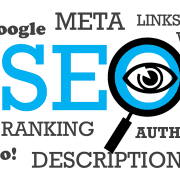Balancing Innovation and Safety: The Tepezza Lawsuit’s Implications for the Pharmaceutical Industry
In today’s time, scientific and technological breakthroughs have helped mankind combat the deadliest of diseases and bring relief. The mere onset of an unknown medical condition has the pharmaceutical giants leaving no stone unturned to deliver the antidotes as fast as they can.
However, more often than not, in an attempt to stay ahead of the competition and increase their profits, these pharma companies put human health at risk.
Take Tepezza as an example. In its initial years, this drug was hailed as a game-changer for patients suffering from a critical condition known as Thyroid Eye Disease or TED.
In recent years, however, several patients have complained about severe hearing issues after using Tepezza. This has raised serious concerns associated with this drug.
In this blog post, we will shed light on the concerns surrounding Tepezza and what it means for the ever-growing pharmaceutical industry.
A Detailed Background on Tepezza
Tepezza is a medication developed by Horizon Therapeutics. In January 2020, the FDA approved Tepezza as the inaugural solitary medication tailored to address Thyroid Eye Disease (TED). This condition, a rare autoimmune disorder, triggers inflammation and harm to the muscles and tissues surrounding the eyes.
How Does It Work?
Tepezza is a human monoclonal antibody that targets and inhibits the Insulin-like Growth Factor-1 Receptor (IGF-1R). By inhibiting IGF-1R, Tepezza reduces inflammation and prevents the production of proteins that can cause eye muscle swelling and tissue damage in TED patients.
This drug is administered via injection, with healthcare providers conducting infusions once every three weeks. Individuals with Thyroid Eye Disease receive a total of eight Tepezza infusions as part of their prescribed treatment regimen.
Initial Reception and Success
Following its FDA approval, Tepezza gained recognition for its ability to improve the lives of TED patients. Numerous patients experienced swift and substantial enhancements in their symptoms, enabling them to restore their quality of life and resume regular activities.
The success of Tepezza in treating TED led to its swift adoption by eye care professionals and endocrinologists, who praised the drug’s efficacy and its potential to transform the standard of care for TED patients.
Despite its initial success and positive impact on patient outcomes, the emergence of the Tepezza hearing loss lawsuit has raised concerns about the drug’s safety profile and the potential risks associated with its use.
Tepezza Lawsuits: The Legal Landscape
Tepezza litigation asserts that Horizon Therapeutics neglected to apprise patients of the potential hazards and adverse reactions associated with the medication. This resulted in serious complications, such as hearing impairment and tinnitus.
One of the first Tepezza lawsuits was filed by Daniel Weibel in August 2022. As per his statement, the pharmaceutical manufacturer was aware or should have been aware that Tepezza, when utilized as directed and intended, induces detrimental hearing impairment and other manifestations, notably tinnitus.
According to TorHoerman Law, the Tepezza Litigation is currently advancing, with 74 lawsuits consolidated under MDL 3079. These legal proceedings center on marketing, sales practices, and product liability matters concerning the drug.
However, the number of plaintiffs is expected to grow as more patients become aware of the potential link between Tepezza and hearing loss. Horizon Therapeutics has denied the allegations made in the Tepezza hearing loss lawsuit.
The company maintains that Tepezza is a safe and effective treatment for Thyroid Eye Disease. It was only in July 2023 that Horizon updated the drug label for Tepezza with a new warning regarding potential hearing impairment, including hearing loss.
Balancing Innovation and Safety
The pharmaceutical sector is vital for creating innovative therapies that meet medical gaps and enhance patient well-being. However, the pursuit of innovation must be balanced with the equally important responsibility of ensuring patient safety.
The Importance of Pharmaceutical Innovation
Pharmaceutical innovation is essential for addressing unmet medical needs and improving patient outcomes and quality of life. Researchers and drug developers work tirelessly to identify new therapeutic targets, design novel compounds, and develop groundbreaking treatments that can alleviate suffering and extend lives.
The Need for Robust Safety Measures
While innovation is crucial, it must be accompanied by robust safety measures to protect patients from potential harm. Rigorous clinical trials and post-market surveillance are essential for identifying and characterizing the risks and side effects associated with new drugs.
Pharmaceutical companies need to conduct extensive testing and monitoring to confirm that the advantages of their products outweigh any potential risks.
Implications of the Tepezza Lawsuit for the Pharmaceutical Industry
The lawsuit regarding Tepezza’s association with hearing loss carries substantial consequences for the pharmaceutical sector. It has heightened public awareness and concern about drug safety, potentially leading to increased scrutiny from regulators, healthcare providers, and patients. This may result in more extensive safety testing requirements and longer drug development and approval timelines.
The lawsuit underscores the significance of obtaining informed consent. Patients need to be fully informed about the possible risks and benefits of medication to make educated choices regarding their treatment.
Pharmaceutical companies may need to work more closely with healthcare providers to develop effective communication strategies and patient education materials.
Additionally, such a scenario may lead to changes in drug labeling and marketing practices. Companies may need to provide clearer disclosures of potential side effects and risks and adopt a more conservative approach to efficacy and safety claims.
By increasing scrutiny of drug safety, emphasizing informed consent, and promoting transparent labeling and marketing practices, the industry can work to balance the need for innovation with the imperative of patient safety.













Leave a Reply
Want to join the discussion?Feel free to contribute!